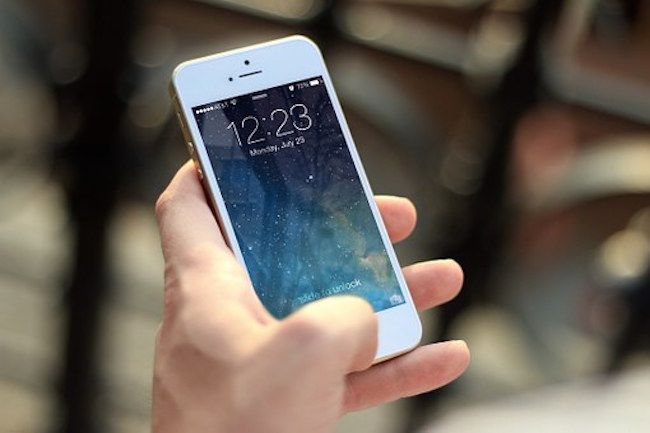“Every Keystroke on Every Device Is LOGGED Somewhere”: The Unsettling Truth About the Internet By Sandra D. Lane for The Organic Prepper
This isn’t supposition, or assumption, or even an opinion. It’s a fact.
If you have the minimum of a standard smartphone and/or leave your house at any time, what you say, what you type, what you do, is being listened to, recorded, monitored, and analyzed by software, technology, people, or all of the above. Cameras in the phone, virtual assistants, GPS (Global Positioning System) tracking, traffic cameras, store cameras, other people’s phones, cameras and recording devices, dash cams, body cams, and even satellite and drone cameras, all watch, listen, and monitor what we do. And that’s just the tip of the iceberg.
Electronic anything is monitored and recorded. Every keystroke on a phone, every letter and number on a tablet, every ad clicked on a laptop or notebook, every site visited on any computer device, every subject entered on every single search engine ever created, is logged and held forever waiting for someone to request that information. Or to hack it. Even DuckDuckGo (which has been quietly added as a search engine option for Google).
If you haven’t already been alerted, let me do so now: Welcome to the end of the Information Age, or what Brian Bi, a former software engineer at Google, calls “the Age of Reckoning”.
As computer use grows in popularity, so does hacking and spying.
First, let’s go back to 1822 when Charles Babbage began developing the first automatic computing machine, and by 1837 proposed what was to be the concept of the first general-purpose computer but it was Charles’ son, Henry Babbage, who was later able to complete a part of his father’s ideas by making a machine that could perform basic calculations. The first programmable computer was created in Germany during the 1930s by German engineer Konrad Zuse, who went on to later construct the first digital computer. Some thirty years later, computer hackers came on the scene.
These hackers were rumored to be MIT students who were curious about the massive machines locked behind glass in temperature-controlled rooms, and the hacks themselves were more like shortcuts, like life hacks, that helped complete computer programming tasks more quickly. One of those hacks actually went on to become UNIX (originally UNICS), a computer operating system. But most hacks weren’t for the betterment of anything, and as the use of computers became more popular, so did hacking.
Fast forward to today and you find computers everywhere and in just about everything. And not just in phones, but in watches, cars, televisions, streaming devices like Firesticks and Apple TV, remote controls, Crockpots, stoves, refrigerators, washers & dryers, coffee pots, game systems, kids’ toys – and the list goes on. And we’re not even getting close to discussing augmented reality machines. Many of all of the above connect, sometimes seamlessly and quietly, and some wirelessly, to the internet. Or the Cloud. Or both.
It is nearly impossible to keep your life private if you use computers.
Of course, the original goal of computers wasn’t to steal your information or identity, and neither was that the goal of the internet. It wasn’t to blackmail you or prey on young kids or teenagers. The idea of computer technology was first conceptualized to make life easier in some way. But now there’s a hacker every 39 seconds, only 43% of that is directed towards the government, retail, and technology (like your local DMV, or Amazon and Walmart,), 447 million consumer records containing sensitive personal information were stolen in 2018 by hackers (that’s about half a billion), and most companies take up to six months to detect even a large data breach – which means you could already be affected while reading this through online businesses, creditors, social media, and the like. When was the last time you used your credit card online, sent a text to your son or daughter, clicked on an online ad, sent an email?
“No one is safe. At all. To be even semi-safe online, you would have to be completely alone. No one would be able to claim you as a person.” says Scott Hutter, a 25-year Computer Software Engineer, known online as Xlar54, told me in an interview for The Organic Prepper. Hutter came on the scene when the internet exploded for the general public, and has seen the various ways of hacking, phishing, and scamming, and has watched the activity grow rapidly over time.
“You get on social media one day post ‘Happy Birthday’, or ‘Happy Mother’s Day Mom!’, or ‘She’s so cute; can’t wait until she’s old enough to drive’, and guess what; you just became someone’s friend, son, aunt/uncle, or mother/father. And all that can be ascertained by human beings who just pay attention.”
There are various reasons hackers seek our personal information.
This means we can be associated with others, or are associated with others, and so on, but most of us already understand that what we put on social media can be dangerous if we’re not extremely careful. But why would anyone ever want to hack our accounts, our computers, our phones, tablets, home security systems, wireless thermostats…? We are just little peons that pay taxes. Hutter says they do it for practice and money.
“China, Russia; they hire a bunch of teenagers just to hack whoever they can. It’s like a big net cast out there to see who/what they can get into. They get in, steal identities, bank accounts, social media accounts, or into businesses and plant malware, viruses, commit cyber extortion… And you can make good money as a hacker, especially if you’re good at it. Hence those who hack for practice. And it’s easy to do, as certain attempts can become automated.”
According to Hutter, who’s spent years working in-depth with Smart Home Devices like the Amazon and Google Smart Home Devices as well as decades with a multitude of programming languages, the easiest way to get in is through passwords. If a hacker can get a password from you, they can eventually make their way into everything you have.
“My advice to anybody is to never, ever, ever, ever, use the same password for anything. Specifically, your email, online accounts such as banking, social media., etc.” Xlar54 stresses. “Once they get into your email, if they’re any good, you won’t know it because they know that you’ll change your passwords on everything and lock them out again. What they’re looking for is more passwords and login usernames, so they’ll slip in, get what they need, then slip out. Most people don’t know they’ve been hacked until their accounts are stolen or, worse, identities are stolen or money is missing. And hackers are actively attempting to get into your devices. Robocalls are nothing compared to how much people are attempting to hack your machines.”
Your phone and computers are treasure troves of data for hackers and spies.
If you think of your smartphone, it probably has the ability to fetch your email, access social media, has Apple Pay or Google Pay (“Wallet”), has your name, pictures of family and friends, maybe even your medical records, lists of meds you take, contacts with their email addresses – it’s a gold mine of information. That’s why stealing phones is big business. Because all the information a hacker needs can be found on your phone. All they have to do is hack into it.




